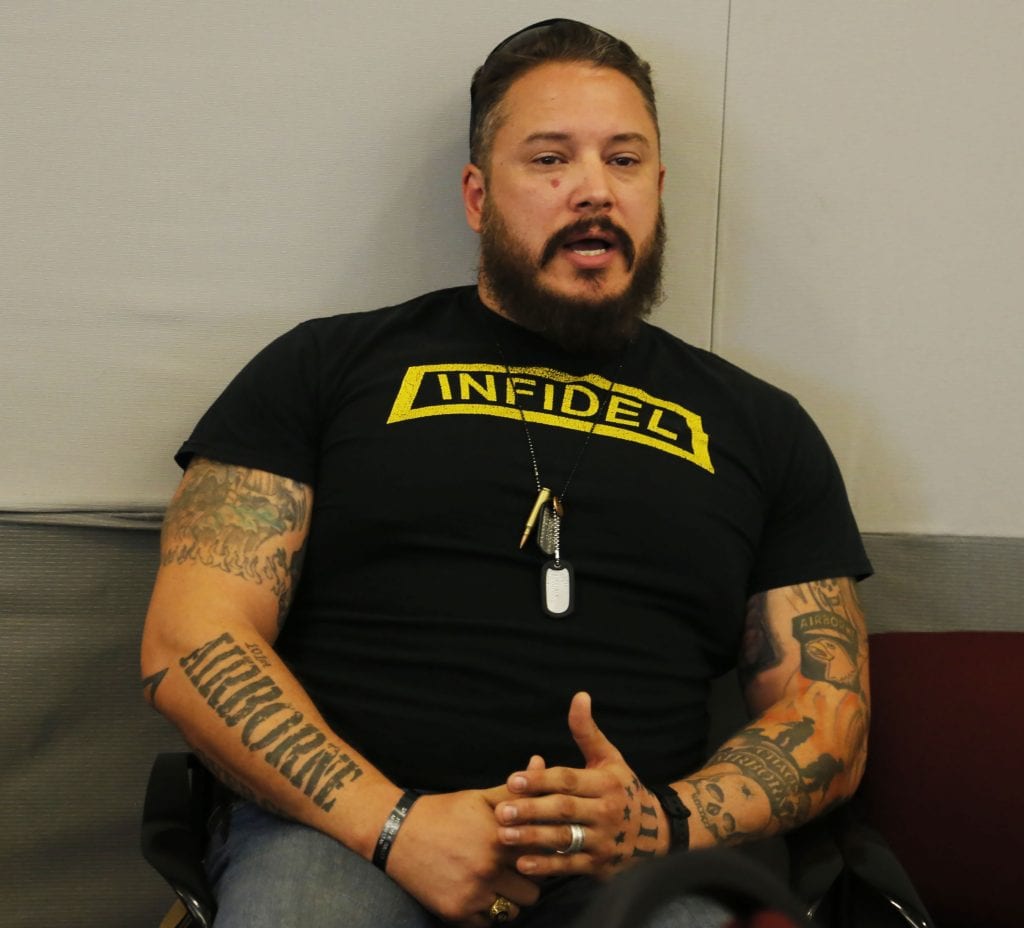Students at College of the Canyons (COC) took an introspective look at how to develop their leadership styles and cultivate organizational growth during a presentation from retired Col. Steven M. Miska Monday.
Presented by COC’s Institute of Ethics, Law and Public Policy, Miska’s seminar about “Leadership in the 21st Century” discussed how students could develop leadership skills in business, government and political enterprises in today’s changing world.
“The art of leadership is to know yourself, not just you personally but your organization at large, know your competition… and know your environment,” Miska said. “The art of leadership is to apply your strengths in creative ways to get a competitive advantage on your competition within the organization you operate within.”

Before founding Servant Leader Citizen Consulting, Inc., Miska served in three combat tours in Iraq, acted as the Army Chair at the Marine Corps University and served on the White House National Security Staff.
“I’m not going to talk a lot about combat leadership lessons. A few might slip in but leadership applies in every aspect of what you do in your life,” Miska said. “All these principles apply… and it’s all about how you apply them and that’s the art of leadership.”
During his interactive presentation, Miska used personal examples, real-life scenarios, interactive games and stories to discuss everything from communication and collaboration to decision-making and constructive lessons.
“Communication is vital to leadership, it is fundamental and critical,” Miska said as he had the students play a game of telephone. “We might not all get the same message, there might not be cross communication in the organization so communications is hard work… Every organization needs to work hard at communications and leaders own the message.”
Miska also discussed how face-to-face communication is always more beneficial to an organization and its employees than email or phone conversations.

“Non-verbal gestures are a way to communicate,” he said. “Face-to-face communication allows you to read non-verbal communication.”
In addition to communication, Miska encouraged the students to learn how to “counsel in private and praise in public,” which can help promote innovation and support collaboration.
“The goal of counseling is you want people to reach their potential so you want to do it in constructive ways,” he said. “In organizations where leaders publicly berate people or they don’t intentionally delegate, those leaders, in my eyes, tend to be really insecure. If you find yourself in that position, you can try to effect change from in the position. We are all, at the end of the day, informal leaders.”
Failure, according to Miska, will also reveal more about a leader than success because of how they respond to it and use it to improve. Influential leaders also intentionally delegate tasks and work to grow people inside of the organization.
“The best leaders that I’ve ever met are trying to work themselves out of a job, to make themselves irrelevant to the organization. If they’ve done that, they’ve done their job,” he said.
These leaders also work to create a “critical mass of talent,” or a core group of key leaders who understand the organization’s mission and are empowered to achieve it.

“When you’re trying to be transformational and you come into an organizational environment that is stifled or that isn’t able to break whatever friction it’s experiencing then you need a critical mass of talent,” Miska said. “It’s intentionally investing in talent. Once you get that critical mass that organization is going to accomplish incredible things.”
Miska also discussed the value of experience, the importance of addressing problems head-on, the need to adapt in new environments and roles, the usefulness of rehearsing what is important and the significance of taking risks.
“This about engendering an environment of risk taking and encouraging people to make decisions,” Miska said. “Good leader are okay taking risks…. Those who can seize the opportunities quick are going to reap the rewards many times.”
However, Miska noted that it is important for leaders to remember to take care of themselves first and find balance in their lives.
“It’s about balance and it’s really easy to get out of balance in life,” he said. “I always think about the different roles in my life and think about where I can get the most synergy in events. You definitely need to attend to those different elements of your life.”
[email protected]
661-287-5575
On Twitter as @_ChristinaCox_









